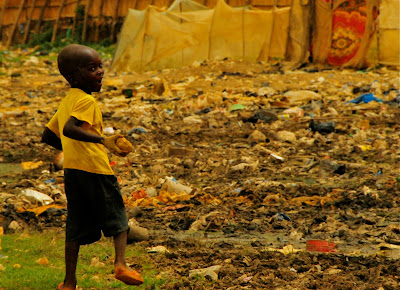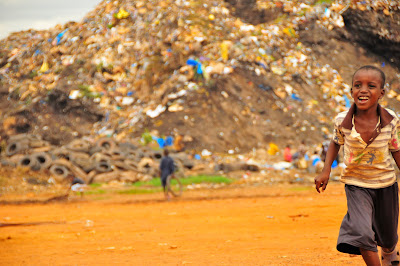In a recent e-mail conversation with a friend back in the US I nearly allowed myself to send off a sweeping generalization that was about as negative as it can get. We’re all friends here so I’ll let you in on the secret, but before I do, in exchange for my barefaced honesty I insist that you read this entire post. What I about said with little explanation was, drum roll… I don’t like Malians.
After discussing this with my much more level headed girlfriend I realized that was just a tad oversimplified. My goal here is to explain that frustrating path to enlightenment proving that, in fact, I don’t dislike an entire human population.
My last few posts have highlighted the difficulties I’ve encountered living in Mali. While I have an endless supply of these trying tales I think you get the picture, no need to beat a dead goat. Now that I’m here, at the end of my rope, at my wits end, just about to snap, the easy out would be to discard all of Mali’s inhabitants as bad people, therefore justifying my struggles and erasing my shortcomings. Unfortunately, it doesn’t work that way.
Upon closer inspection I have come to these conclusions. Bamako has approximately two million citizens and according to the all-knowing Wikipedia is the fastest growing city in Africa, sixth fastest in the world. 99.6 percent of this two million, according to a study I just made up, are of African descent. An overwhelming majority of that number has little to no outside contact with the rest of the world as we know it. To be honest, the most attended geography lesson here occurs once every four years during the World Cup.
What does this mean? First of all, it’s easy for any single member of a large group of people to blend into the majority and fall victim to the mob mentality. It’s easier to go with the flow, a universal truth. Friends of mine who live in smaller villages have had very different experiences than me. They’re able to spend some time with most of the people that they’ll deal with on a daily basis. Kids don’t see an odd white stranger walking by, they know their name, their family and probably have had some first hand interaction with them. The novelty is gone along with any desire to harass and taunt. This suggests that the mob mentality is alive and well in Bamako.
Secondly, most Malians rarely bump into, let alone converse with, a white western man. That rate of occurrence is slightly higher than Americans who have reported alien encounters, citation from study referenced above. Taking this regrettably weak comparison, would it be fair to expect an American who stumbles across an alien to inherently understand and exhibit all of the cultural norms to make that Martian feel at home?
Now, it’s only fair to discuss the very real flip side of this whole ordeal. There are many things about the Malian culture that I have the utmost respect for. At the top of that list is the respect they show for their elders. The best example of this is when an older Malian man enters an area where many other Malian men and boys are sitting. Like clockwork, one of the older men, who will undoubtedly have one of the better quality seats, will stand up and offer their chair. Before that man can turn around one of the teenage boys sitting near him will have gotten up and be replacing his chair with theirs. Finally, this seat less teenage boy will pick out one of the smaller boys and smack them across the back of the head and tell them to give up their seat. It’s the circle of life.
Malians also take time to spend with their friends and family. One could argue that this is because they don’t have TVs and laptops to steal their attention. This may be true, but the fact is that they don’t have them now, and whether they know it or not, they don’t act as if they’re missing anything. Malians have perfected the art of sitting together. Talk if you wish, but just sitting will suffice as quality time.
 |
| sitting... |
One final admiration for their culture is that the idea of imposing doesn’t seem to exist. This took some getting used to when I was the imposed and not the one doing the imposing. For example, when I got back to my apartment today three guys were huddled around a meager bowl of rice and some random sauce. It wasn’t much but they didn’t think twice to invite me to eat. I kindly turned them down but even if I had accepted their offer they’d gladly share what little they had. On this same topic a Malian house call is as welcomed and nearly as frequent as an American teenage girl texting her friends, LOL. Plus, there is no pre call to get an ok for the drop by, you just drop by, and if no one answers the door you drop in, maybe sit around for a while, it’s no big deal.
So to put some more rational thought, sans emotion, behind my opening point; there are aspects of Malian culture that have been very difficult to accept and given my American background coupled with a slightly stubborn personality I believe there are some aspects that I will probably never adopt as natural. And for the first time I’m ok with that.
I’m going to finish this one with a call to action. One of the more annoying aspects of living in the big city is that I am constantly the recipient of a ruthless scream of “Toubob!” from onlookers as I bike by. Over the last week I’ve been counting and have figured that I receive an average of 15 of these a day. For you first time readers out there Toubob roughly translates to white person. All Asian American volunteers are affectionately called Chinois and little kids practice their Kung Fu on them.
For the next month or so I am going to have a goal of stopping at least once a day when I hear that lovely Toubob catcall. I’ll have a short conversation with the group of kids, teenagers and sometimes adults. I’ll introduce myself, learn their names and after reiterating my name I’ll tell them that they can call me by my name so they don’t have to scream Toubob anymore when I drive by.
On any given day I drive by hundreds of different people so I’m not expecting to never again hear Toubob as I drive by, but I will track the change and put weekly updates here on the blog so get excited!




















